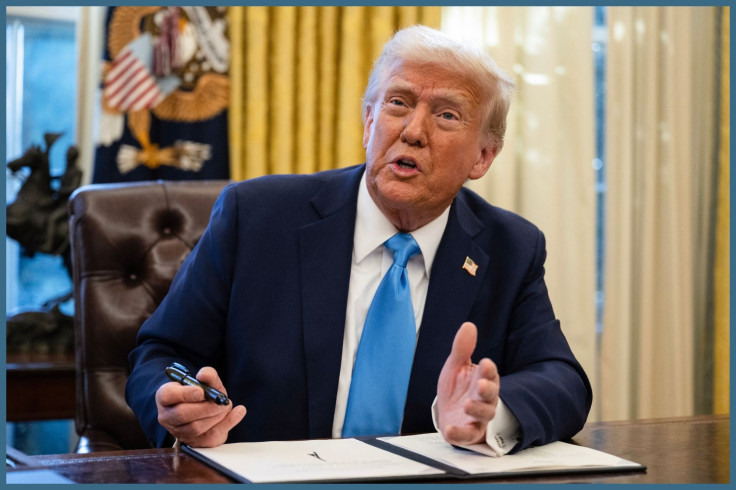
The Trump administration recently revoked the Temporary Protected Status (TPS) program for Venezuelans, leaving hundreds of thousands of nationals across the U.S. vulnerable to deportation as of April. The move has made some Venezuelans feel betrayed by a group they supported and thought would protect them.
Venezuelans in South Florida have become some of Trump's biggest proponents, even leading to the nickname "MAGAzuelans," a nod to the president's "Make America Great Again" movement. While the majority of them could not actually vote, they attended rallies, decorated their front lawns with Trump flags and posted on social media their loyalty to the Republican leader, especially given the Republican party's highly critical stance on Venezuela's authoritarian president, Nicolas Maduro.
The recent decision to cancel TPS for around 350,000 Venezuelans has been met with confusion, fear and outrage, according to a new report by The Washington Post.
"Today, I feel the same way I felt in Venezuela— that they're going to come take me somewhere I won't be able to escape from," Ronald Bellorin, a Venezuelan who fled during the first Trump administration in hopes the Republican leader would protect him and his family, told the outlet. "It's terrible to feel this way here in the United States.
"I thought we would be safe here," he added as he teared up recounting his family's story.
Some of Trump's most dramatic inroads with Latino voters were made in Florida, particularly in Doral, where roughly 40% of the city's residents have Venezuelan roots, leading to the nickname "Doralzuela." Trump went from losing the city in 2016 to winning in the 2024 election, getting 62% of the vote and beating Vice President Kamala Harris by 25 percentage points.
"The Venezuelan community gave President Trump their support," said John De La Vega, a Venezuelan American immigration lawyer and Army veteran. "This is completely different from what I thought it was going to be."
Among those who are confused about Trump's TPS decision is Andrea Gabriela Rangel Walther. She thought the president would shield Venezuelans from deportation. Now, her own father, who also supported Trump, risks being forcibly removed from the country. His TPS expires in April, according to the Post.
Walther said she knew Trump vowed to deport immigrants who committed crimes and singled out members of Venezuela's feared Tren de Aragua gang as initial targets. But she didn't expect the administration's targeting of non-criminal migrants, like her family.
"He's been to Doral. He's been to Miami," she said. "He knows all Venezuelans aren't Tren de Aragua."
Some elected officials in the area have already been pleading with Trump to go back on the decision. Among them is U.S. Rep Mario Diaz-Balart. "I respectfully request, within all applicable rules and regulations, that you assess all options available to ensure that Venezuelan nationals without criminal records are not forcibly returned to one of the most repressive dictatorships in the world," the Miami Republican wrote.
Diaz-Balart isn't the first Florida Republican to break from the Trump administration on this decision. In fact, he has partnered with Republican colleagues Rep. Carlos Gimenez and Maria Elvira Salazar to advocate for the program or for a review of the beneficiaries on a case-by-case basis.
"Unfortunately, that reality remains unchanged," Diaz-Balart wrote to Noem. "The humanitarian crises in Venezuela have only worsened in the intervening period, and political persecution has escalated."
The Miami-Dade commission also issued a resolution to that end. The bipartisan resolution was introduced by Rene Garcia, a former Miami-Dade GOP chair, and calls for maintaining all TPS designations currently in place, the Miami Herald reported. County Commissioner Juan Carlos Bermudez, a Cuban-born Republican, said he is supporting the resolution because "we are a community of immigrants."
However, not all Republicans in the state have the same assessment of Trump's decision. Florida Sen. Rick Scott defended it last week, saying it's a result of former President Biden's "abuse" of the program.
In a statement focused on the Venezuelan community and sent to The Latin Times, Scott said that "President Trump took action to protect vulnerable Venezuelans during his first term— but then former president Joe Biden abused the TPS program, opened our border and took action that dismantled our immigration system and our ability to fully vet true protection seekers."
© 2025 Latin Times. All rights reserved. Do not reproduce without permission.




